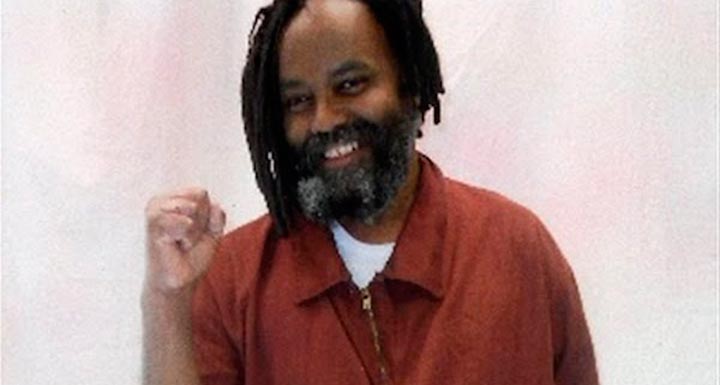
Mumia Abu-Jamal sues Pennsylvania to Overturn Gag Law
Prison activist and journalist Mumia Abu-Jamal is challenging a law passed by the Pennsylvania legislature last month that gives unlimited powers to district attorneys and crime victims to silence prisoner speech by claiming that such statements cause victims’ families “mental anguish.”
The “Revictimization Relief Act” was passed after Abu-Jamal delivered a pre-recorded speech to students at Vermont’s Goddard College, his alma mater, which calls him “an award winning journalist who chronicles the human condition.”
Pennsylvania Governor Tom Corbett, a Republican, signed the measure into law on October 21, saying it’s designed to curb the “obscene celebrity” gained by prisoners like Abu-Jamal, who has drawn international support for claims he’s the victim of a racist justice system.
On Monday, 60-year-old Abu-Jamal and prisoner-rights groups filed a federal lawsuit seeking to stop the law, asking a judge to declare it unconstitutional.
“The statute was enacted principally to silence Plaintiff Mumia Abu-Jamal,” says the lawsuit, brought by Abu-Jamal, along with prison activist Kerry Shakaboona Marshall, Prison Radio, the Human Rights Coalition, and Educators for Mumia Abu-Jamal.
Civil rights experts will challenge the law in court. “This law is clearly unconstitutional,” says Bret D. Grote, legal director of the Pittsburgh-based Abolitionist Law Center, the attorney representing the plaintiffs.
Grote charges that the law “is overbroad, vague, and penalizes a substantial amount of lawful speech, including truthful statements and speech on matters of public concern. The statute was explicitly written and passed in an attempt to penalize lawful speech….The Pennsylvania Legislature and Gov. Corbett wanted to use Mumia Abu-Jamal to score political points and passed a law that can’t pass constitutional muster. We’re suing Attorney General Kane and Philadelphia District Attorney Seth Williams before they can sue to keep Mumia from speaking publicly,” said Grote.
“If the First Amendment means anything, it’s that government officials can’t silence people they don’t like,” said Vic Walczak, legal director of the American Civil Liberties Union of Pennsylvania, who refers to the law as a “result of election-year pandering.”
He added that the law would even apply to people who have served their sentence and been freed from prison.
Mumia Abu-Jamal and the other plaintiffs ask that the law be permanently invalidated.
Pennsylvania Attorney General Kathleen Kane and Philadelphia D.A. Seth Williams are the named defendants.
Abu-Jamal was arrested and charged with killing white police officer Daniel Faulkner in Philadelphia in December 1981. One year later, he was tried, convicted, and sentenced to death.
In 2011, the United States Supreme Court declared the death penalty unconstitutional in his case, and he was re-sentenced to life in prison without parole.
Abu-Jamal has spent 33 years in prison, 30 of which were in solitary confinement on death row after being convicted at a 1982 trial that Amnesty International said “failed to meet minimum international standards safeguarding the fairness of legal proceedings.”
Abu-Jamal, who was formerly a radio announcer and the president of the Philadelphia Association of Black Journalists, maintains that he is innocent and has submitted numerous appeal requests based on allegations of judicial bias, withholding of evidence, coercion of witnesses, and an inadequate defense during his arrest and trial 33 years ago.
The African-American activist, who graduated from Goddard in 1996, said that his studies at the college provided him an opportunity to learn about important figures in far-off places.
Abu-Jamal joined the Black Panther Party at the age of 15 in 1968 and helped form the Philadelphia branch of the party. He was subjected to FBI COINTELPRO surveillance beginning in 1969.
He was arrested in a climate of political hysteria against the MOVE organization in Philadelphia in 1981, an organization whose protests he had covered objectively as a radio journalist.
Before his arrest, Abu-Jamal was known for his outspoken political views and commentary on racial injustice and police brutality.
During his years in prison, Mumia Abu-Jamal has continued to speak out against the U.S. prison system, U.S. government policies and many forms of oppression. In his writings, he has frequently expressed solidarity with movements working for social change. He has written over 3,000 essays and seven books during his years in prison and will publish two more books in 2015.
(From the: Telesur)

